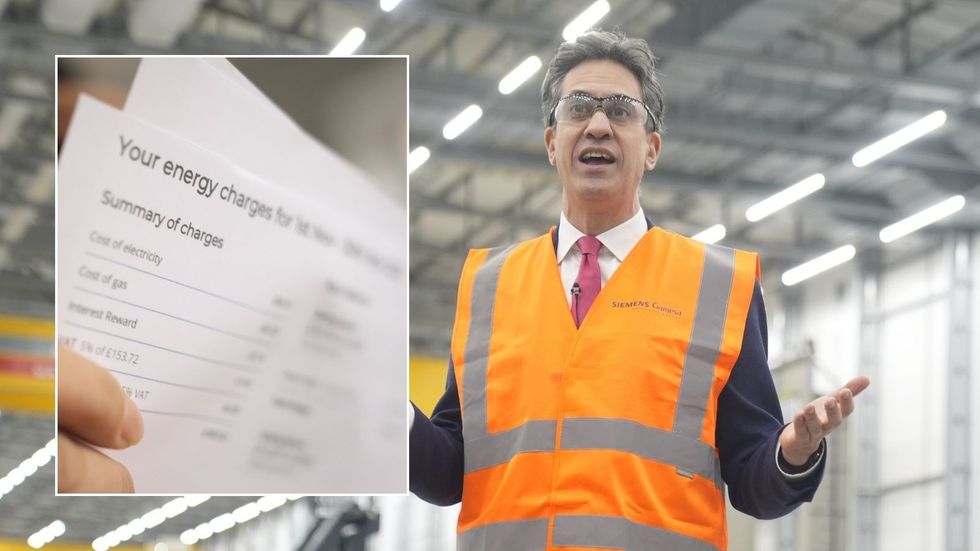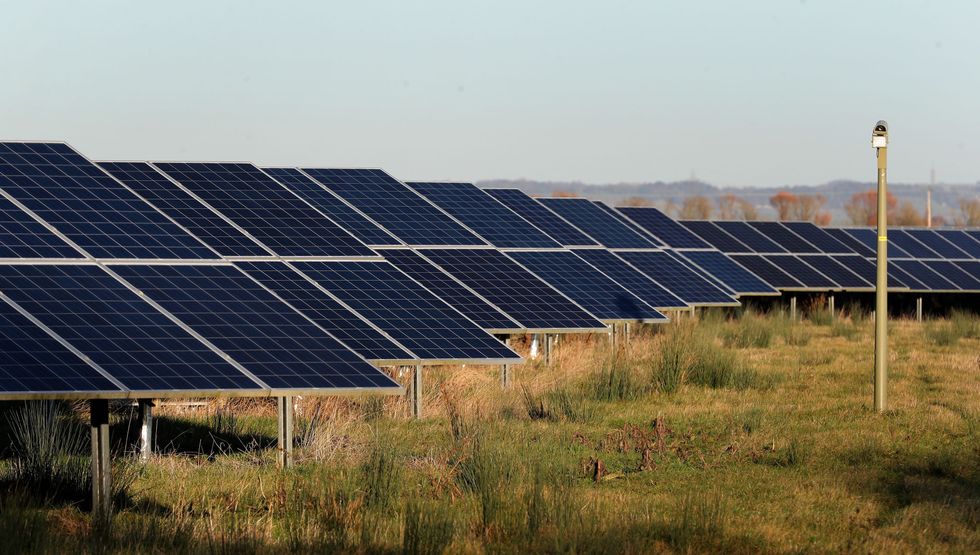



Wealthier households may soon pay more for their energy than lower-income families as part of Government efforts to fund Britain's transition to renewable power.
The energy regulator has begun examining how to restructure billing systems to prevent vulnerable consumers from bearing an unfair share of net zero infrastructure costs.
Ofgem is looking into whether household energy charges should be linked to income, potentially creating a tiered payment system.
This controversial approach would mark a major shift from the current system, where all customers pay the same standing charge, regardless of their income.
Ofgem’s review focuses on standing charges, the fixed fees that help fund Britain’s electricity network, including pylons, cables and substations.
These charges have risen sharply since 2019 and now account for around £300 of the average £1,720 annual energy bill.
Jonathan Brearley, Ofgem’s chief executive, said that although renewable energy could help cut the cost of electricity by reducing gas use, the major infrastructure upgrades needed to modernise the grid could push standing charges even higher.
He said: "This shift in the make-up of system costs means we need to review how we pay for energy and carefully consider how these costs are distributed."
The implementation of income-based energy pricing would present significant practical challenges, as utility companies currently lack access to customer financial data. .
 PA | Labour's net zero plan 'only way' to cut costs, Miliband claims
PA | Labour's net zero plan 'only way' to cut costs, Miliband claims
Council tax bands might serve as the only readily available indicator of household wealth, though this proxy measure remains imperfect.
Earlier this year, Brearley indicated the review would examine whether "we can allocate costs more progressively", specifically investigating methods to tie fixed cost payments to household income levels.
The regulator has emphasised that no specific recommendations have been made yet, with the current phase focused solely on gathering stakeholder views about potential billing reforms.
Energy industry leaders have expressed divided opinions on the progressive billing proposals.
 GETTY |
GETTY |
Middle-class households face higher energy bills to fund net zero under new Ofgem review
Dale Vince, Ecotricity's chief executive and Labour donor, endorsed the concept, revealing his company had suggested similar measures to the Treasury before last year's October Budget.
"We proposed a tax-free allowance of power consumption, say 2,000 units of electricity a year, below which government levies would not apply," he explained.
Chris Norbury from Eon UK welcomed the review whilst cautioning against superficial solutions.
He warned: "Ofgem must also avoid the temptation to create a short-term solution that simply moves these costs between customer groups, overlooking the people who need the most help, and disproportionately helping others."
 PA |
PA |
The Office for Budget Responsibility projects that net zero levies will increase by 60 per cent before the decade's end
The transition to renewable energy necessitates substantial investment in Britain's power infrastructure, with Energy Secretary Ed Miliband's commitment to decarbonise the grid by 2030 accelerating these costs.
The Office for Budget Responsibility projects that net zero levies will increase by 60 per cent before the decade's end.
Some industry figures advocate alternative funding approaches. Chris O'Shea from Centrica has proposed shifting net zero upgrade costs from energy bills to general taxation.
Meanwhile, shadow energy secretary Claire Coutinho criticised the review's focus, stating: "Ofgem should focus on reducing energy bills for everyone, not just shuffling the costs around."
